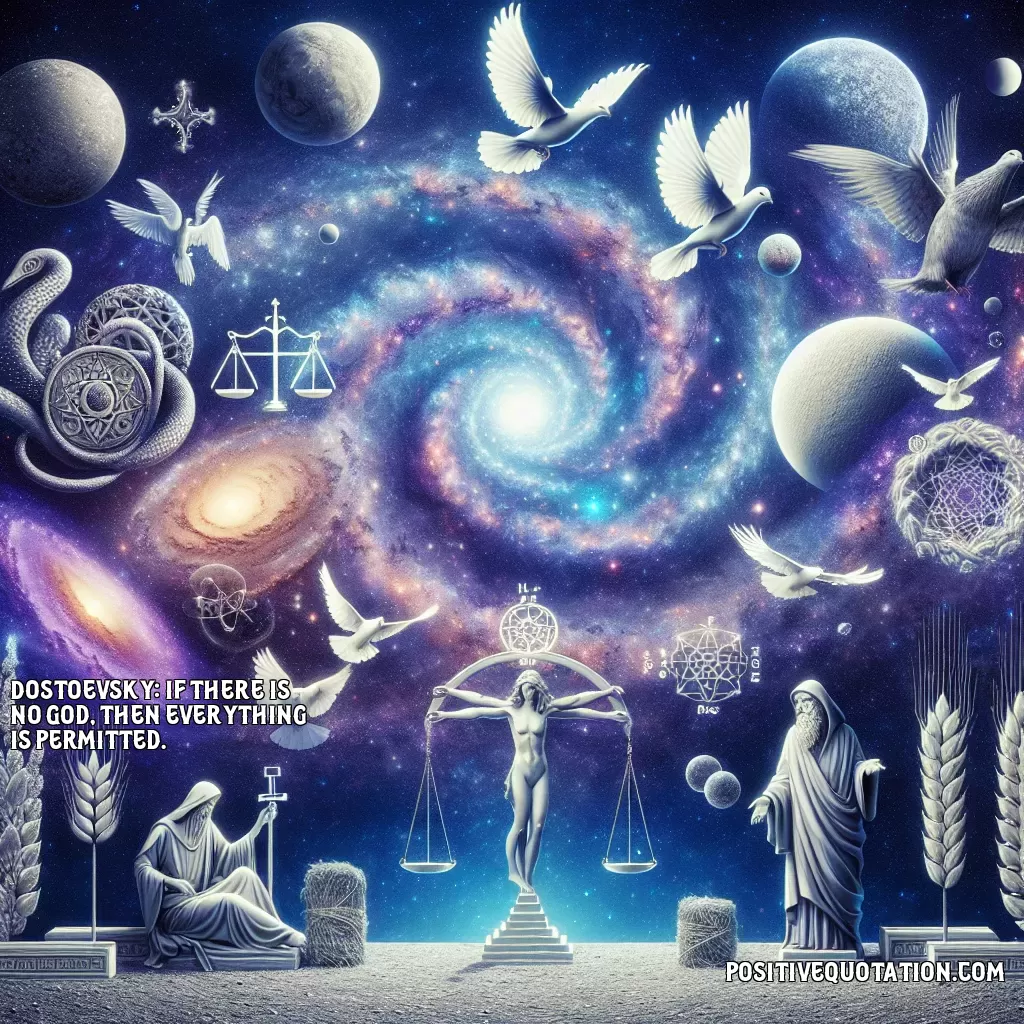
Dostoevsky: If there is no God, then everything is permitted.
Author: Fyodor Dostoevsky
👁️ 6 views
The quote "If there is no God, then everything is permitted" by Fyodor Dostoevsky reflects a philosophical idea concerning morality and the nature of ethics in a universe devoid of a divine being. In this context, Dostoevsky suggests that without a higher power to define what is right or wrong, individuals might believe that they can act without moral constraints. This leads to the potential chaos of unchecked human behavior, where personal desires and impulses could justify any action, regardless of its impact on others. The quote encapsulates existential themes about the search for meaning and the foundations of morality, highlighting the struggle between faith, ethics, and human freedom.
Quote By: Fyodor Dostoevsky
Fyodor Dostoevsky was a renowned Russian novelist and philosopher, born on November 11, 1821, in Moscow. His works, including "Crime and Punishment," "The Brothers Karamazov," and "The Idiot," delve into complex themes of morality, free will, and the human condition, reflecting his own struggles with poverty and existential despair. Dostoevsky's literary contributions have had a profound impact on literature and psychology, establishing him as a pivotal figure in world literature, and he passed away on February 9, 1881, in St. Petersburg.
Bio added on: 2025-02-15 16:55:50